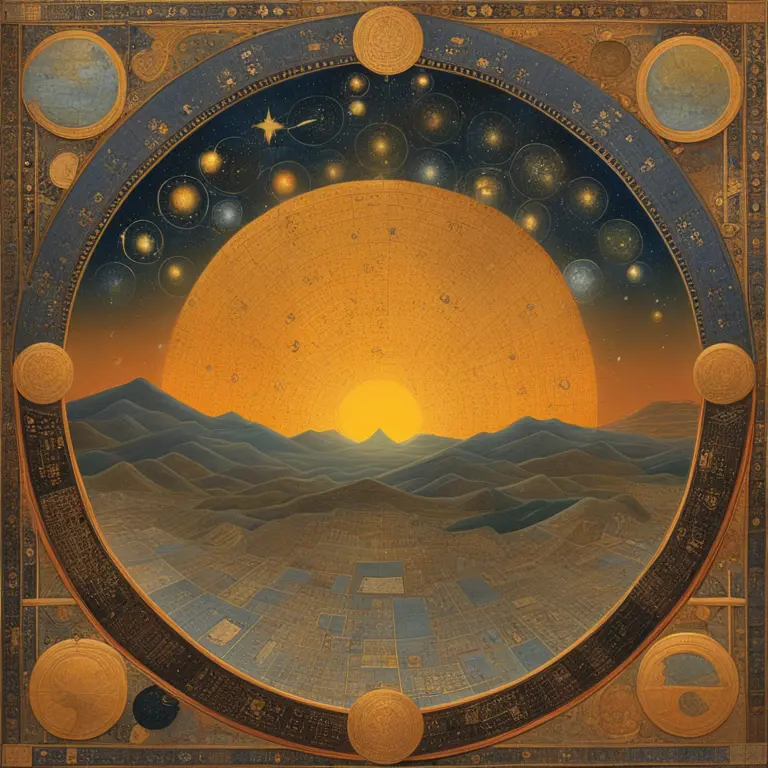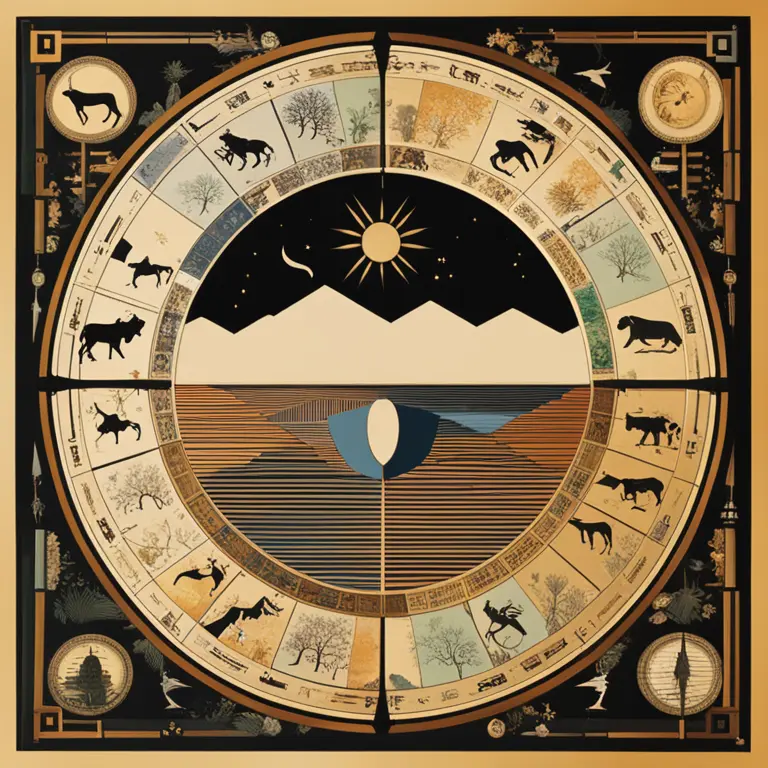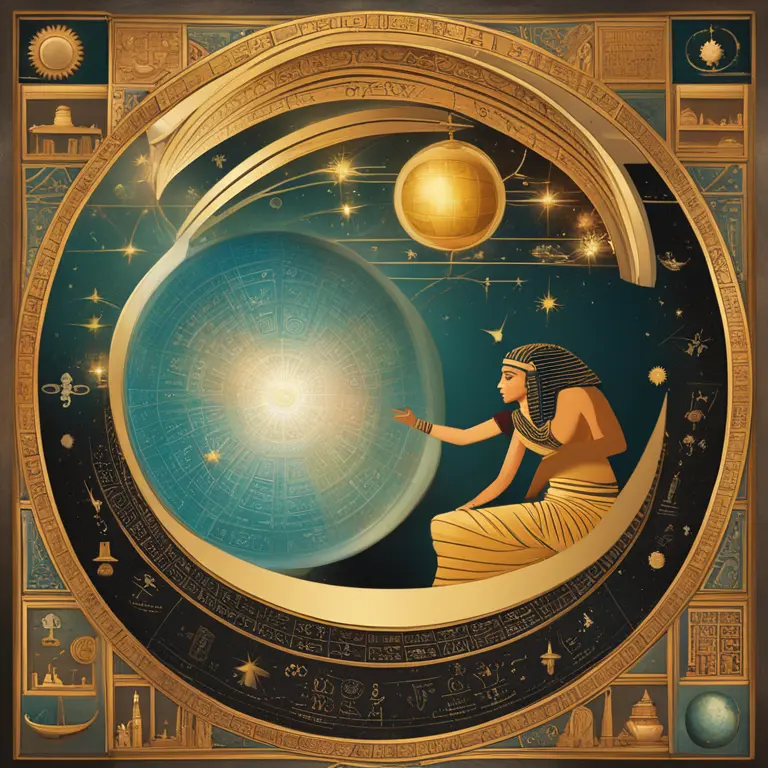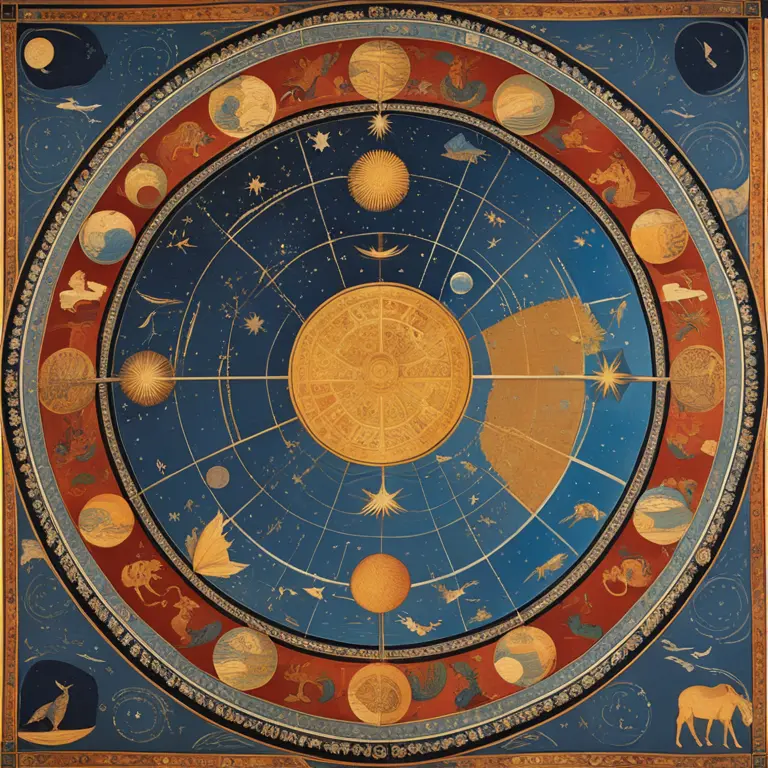
The Genesis and Journey of Zodiac Signs
Trace the origins and evolution of zodiac signs through the ancient practice of astrology, discovering their significance through the ages.
article by Priya Deshmukh
The Dawn of Astrology
Astrology's roots extend deep into history, with the zodiac's emergence intricately tied to ancient civilizations' quest for understanding. Cultures across Mesopotamia harnessed the stars circa 2nd millennium BC, with Babylonians developing the first organized system. Their work laid the groundwork for zodiac signs, as they mapped the celestial sphere into sections, associating them with specific periods and corresponding characteristics. This early astrology was a blend of scientific observation, myth, and mysticism, a complex tool for both prediction and divine communication.

Ancient Zodiac Spherical Tapestry
The notion of a celestial zodiac evolved amongst the Greeks and Romans after inheriting it from the Babylonians. Ptolemy, an influential Greek-Egyptian astronomer, ensured the longevity of these astrological traditions through his seminal work, the Tetrabiblos, in the 2nd century AD. A spherical zodiac consisting of 12 signs, each allocated to a 30-degree section of the sky, was widely accepted. The Greeks contributed names and identities to the constellations, forever imprinting cultural narratives and myths upon the celestial canvas.

Horoscopic Astrology's Birth
With horoscopic astrology's birth in Hellenistic Egypt, individual destinies became intertwined with the stars. This practice focused on casting a horoscope for the exact moment of a person's birth, allowing astrologers to interpret how celestial bodies influenced their future. The zodiac signs, as well as planetary positions, were used to offer guided prognostications. These horoscopes became intricate, personalized maps, illustrating an individual's nature and life path based upon the cosmic alignments at their birth.

The Zodiac's Cultural Migration
Astrology's influence was not confined to its birthplace; it traveled through trade routes and conquests, settling into various cultures. Islamic scholars of the Middle Ages preserved and enhanced these celestial studies, integrating them with their own astronomical observations. As Europe entered the Renaissance, astrology experienced a revival; the zodiac's importance surged as scholars and laypeople alike sought celestial insights. Universities even incorporated astrology into their curricula, legitimizing its study alongside emerging scientific methods.

Modern-Day Perspectives
Skepticism toward astrology grew during the Age of Enlightenment, as empirical science began to dominate. Nevertheless, astrology persisted, adapting to new cultures and evolving with societal changes. In the 21st century, the zodiac still holds considerable sway in popular culture, with an eye toward the future including forecasts relevant for 2024 and beyond. Astrologers now integrate technological advancements in astronomical calculations with timeless interpretations, offering guidance and reflection in an ever-changing world.
The Zodiac in Contemporary Times
As we peer into horoscopes for 2024 and the coming years, we encounter the zodiac as a tool for self-discovery and cosmic connection. The signs offer us narratives to explore potentials and challenges in our lives. Whether seeking compatibility insights or understanding personal biorhythms, the ancient wisdom of the zodiac remains a significant thread in the fabric of our digital era's spirituality and wellness practices.
Published: 2/5/2024
Modified: 2/6/2024
More predictions
Come back here soon to learn more about yourself and your future


The Zodiac's Blueprint: Signs & Astrological Houses
Delve into the essential components of astrology – signs and houses – and their profound impact on your personal zodiac blueprint.


The Astrological House System: Core Spheres of Life
Delve into the foundation of astrology through the house system – spheres of influence guiding your path in the cosmic blueprint.


The Role of Dominant Houses in Astrology
Discover the influence of dominant houses in your astrological chart and how they shape your life experiences and character traits.